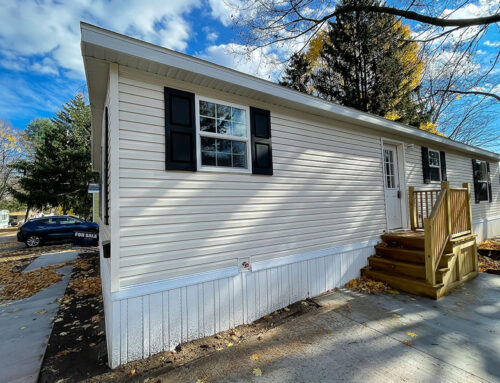When my pal, Gerry, decided to become a real estate investor, he immediately started compiling a list of possible ways to acquire distressed property that he could renovate and resell. At the top of his list was buying a foreclosed home in NY. And, quite honestly, I wasn’t surprised. For over a year now, many of us have started to notice what looks like an uptick in foreclosure activity across the state. This bucks the trend of an overall drop in foreclosures seen nationwide. With more foreclosures potentially hitting the local market in the near future, a lot of new investors, like Gerry, seem to be gearing up to grab some of these deals in an effort to start building their property investment portfolios.
So, when Gerry approached me looking for resources on where to buy foreclosures, of course, I told him I’d help. As a long-time investor in the great state of New York, however, I also told him I’d give him a little insider information on what he could really expect when buying foreclosed homes and where he could get even better deals.
Resources for Buying a Foreclosed Home in NY
The appeal of foreclosed homes as investment properties is their potential to produce a solid ROI after they’ve been renovated. Foreclosure properties tend to be in rough shape, so their typically priced to reflect their condition. Banks are often eager to offload them quickly too. So, if you’re looking for a good opportunity to invest in Queens real estate, for example, buying a home that’s been foreclosed on in an up-and-coming neighborhood like Douglaston or Little Neck, could get you on the road to building your property investment portfolio fast with a potentially great return. This is especially true now that it looks like more chances to buy foreclosed homes in New York might be coming down the pipe. But, what does that process look like?
Since New York is a judicial foreclosure state, a lender must sue the homeowner before repossessing the property as part of the foreclosure process. If the lender wins the lawsuit, the home is then ordered to be publicly auctioned off to the highest bidder. This gives the lender the chance to recoup some of its costs to repay the mortgage debt. It also gives you the opportunity to buy a distressed home for far below market value should you win the bid.
Most counties in New York hold these public foreclosure auctions, which are sometimes called Sheriff’s Sales. So, you could attend a foreclosure auction in Brooklyn or one in Rochester and possibly walk away with a great property to renovate and resell for a solid ROI. To find out where the auctions are held in your area, check your local newspaper, online, and with your county’s courthouse or sheriff’s office. You should also be able to find a list of inventory, starting bids, auction dates and times, and sale terms with these sources as well. But, for the most part, you can expect to pay the deposit in cash or a cash equivalent, like a certified check, when you arrive and to pay the full balance of your offer within a day or two—so come prepared.
There are several problems associated with buying foreclosure auction homes, however, that are difficult to prepare for. Inspections are not usually allowed, which means you could end up with a house that needs more repairs than you’ve budgeted for. And, because down payments are due at the time of registration and full payment is due so quickly thereafter, the likelihood that you’ll have time to perform any due diligence is slim. So, any back taxes, unpaid utility bills, or other liens against the property become yours. You could also be saddled with occupants, whether they’re tenants or squatters, who refuse to leave. In most cases, you can’t back out of a sale either—no matter what you uncover. Try, and you’ll likely lose your deposit and pay a fine. That’s assuming, of course, that you even win the bid without paying for it through the nose. There is a lot of investor competition at auctions, but even the foreclosing lenders get in on the action these days. This creates some challenging competition that can drive the bidding high and your potential for realizing returns low.
If a house doesn’t sell at an auction, it usually returns to the lender’s inventory as a real estate-owned property (REO). Then, the bank, credit union, or other lender may list the home for sale with a real estate agent. Sometimes, the lender will sell the home as-is. At other times they’ll perform some minor repair work first and even remediate liens or encumbrances. So, what may have formerly looked like a risky investment property at a Long Island auction, gets closer to looking like a sure thing if you don’t have to worry about dealing with things like back taxes.
The big issue with buying directly from a lender, however, is that you’re likely going to overpay. Whether the bank chooses to rehab the property a little or a lot, they tend to price their inventory at or close to what the market will bear. And, with more owner-occupiers qualifying for loans and competing with investors for these properties, these lenders often get what they ask for. Sure, it’s great getting a house with some of the work already done and a clear title to boot. But, paying full retail on a home—no matter what shape it’s in—won’t equal any returns.
Personally, I find the prospect of buying REO homes as troublesome as having to deal with the risk of buying from foreclosure auctions. You’re not always getting a great investment on a New York house when you use these resources and you’re not doing anything to help a homeowner in distress. And, because the average time to foreclosure is almost three years, according to Attom Data Solutions, there’s no reason to wait to buy directly from a homeowner who’s having trouble paying their mortgage. You still get a good deal and they get to avoid losing their home to the bank. All you need is a way to find those leads.
A Better Resource for Buying the Best Deals
As a well-seasoned New York investor, I’ve pretty much tried it all when it comes to sourcing leads on distressed properties and that includes chasing after foreclosed homes. Unfortunately, most of the time I felt like I was really just chasing my tail—especially because foreclosure activity can fluctuate. Eventually, I had to face the facts much like Gerry was beginning to. Foreclosures aren’t a reliable resource for finding distressed property leads in New York. Fortunately, I found something that is: the ”We Buy Ugly Houses®” marketing campaign.
The marketing tools and resources made available to independently owned and operated HomeVestors® franchisees, like me, can generate leads on distressed homes before they’re foreclosed on. And, what’s even better is that these leads come directly to us in real time—no chasing necessary. That’s because homeowners who are in trouble and need to sell their homes fast—for any reason—see the “We Buy Ugly Houses®” billboards and television ads, or hear them on the radio, and reach out on their own. It’s a marketing strategy that’s been at work since 1996, helping HomeVestors® franchisees in 47 states and D.C. buy over 140,000 houses.
For a better resource to get good qualified leads, contact HomeVestors® about becoming a franchisee today.
Each franchise office is independently owned and operated.
Contact
"*" indicates required fields





